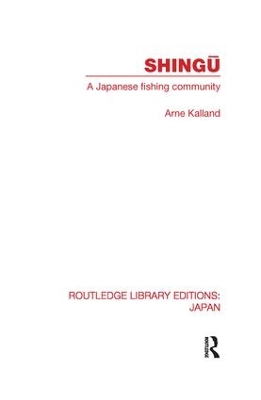Routledge Library Editions: Japan
2 total works
From being an important centre which attracted a large number of merchants during the feudal period, Shingū, on the northern shores of Kyushu is today a suburb of Fukuoka City. Fishing is a slowly-dying occupation and this volume analyses how the fishermen adjust to changing circumstances. Although Japan is the largest fishing nation in the world, when originally published this book was the first to be published in English which focussed on the composition and role performance of the crews and larger net-groups. This analysis has been set in an historical perspective, showing how the vertical structures during the Tokugawa period have changed to more egalitarian structures where much energy is spent to hinder the development of any new hierarchy.

